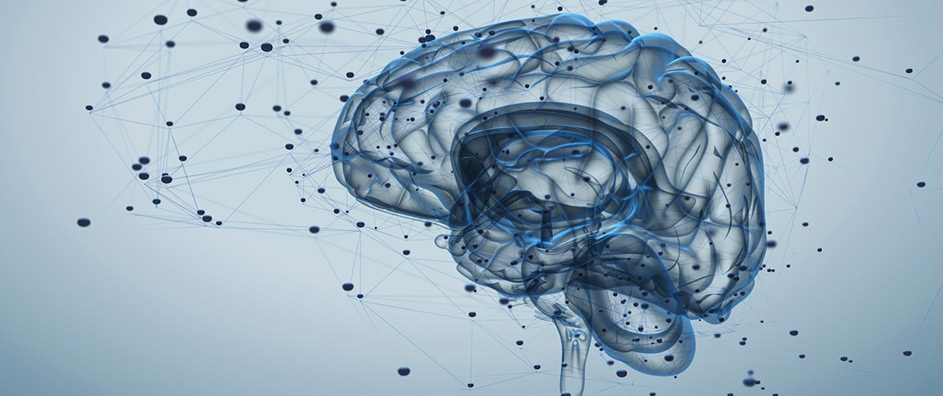The views expressed in our content reflect individual perspectives and do not represent the authoritative views of the Baha'i Faith.
Our intellects make us human, navigate us through the rough seas of life, and allow us to think through the challenges and opportunities we face.
The Baha’i teachings exalt the human intellect, comparing it to light:
To man is given the special gift of the intellect by which he is able to receive a larger share of the light Divine. – Abdu’l-Baha, Paris Talks, p. 27.
It is the light of the intellect which gives us knowledge and understanding, and without this light the physical eyes would be useless.
This light of the intellect is the highest light that exists, for it is born of the Light Divine.
The light of the intellect enables us to understand and realize all that exists, but it is only the Divine Light that can give us sight for the invisible things, and which enables us to see truths that will only be visible to the world thousands of years hence. – Ibid., pp. 68-69.
We each have the God-given gift of an intellect, an internal truth meter, which offers us the reasoning, discernment and judgment that guides us when we’re faced with determining what’s true and what’s untrue. In this world, everyone has those daily encounters with truth and falsehood, and our rational faculties help us decide between them.
Every time we attempt to discern the truth, our intellect makes those crucial decisions. If we have well-developed intellectual abilities that allow us to recognize truth, we can avoid an enormous amount of grief and trouble in life. But if we lack those abilities, we’re subject to fraud and failure and enormous loss, and we can wind up inviting tremendous suffering into our lives. Our intellect, if it’s well-developed, gives us common sense, discernment, good judgment and wisdom. The Baha’i teachings praise wisdom and discernment, counting them as the inward perfections of the enlightened intellect:
The spiritually learned must be characterized by both inward and outward perfections; they must possess a good character, an enlightened nature, a pure intent, as well as intellectual power, brilliance and discernment, intuition, discretion and foresight, temperance, reverence, and a heartfelt fear of God. – Abdu’l-Baha, The Secret of Divine Civilization, pp. 33-34.
Discernment gives us the ability to be rational, to reason, to employ logic, to see the end in the beginning, and to understand the real inner meanings of things. Wisdom allows us to separate truth from falsehood and live an authentic life.
Both of these sterling qualities let us discern the truth when direct personal observation with our senses can’t or won’t suffice. Discernment allows us to exist in a world we can’t always experience directly, in a higher consciousness and a more rarified atmosphere. With wisdom and discernment engaged, we can discover and determine a higher truth.
But wait: the coherent powers of the intellect and that wonderful attribute of discernment, despite their enormous value to us throughout our lives, aren’t always perfect. Our intellects—imperfect instruments at best—often fail us. No one can claim a perfect track record of making absolutely correct, discerning decisions in every instance. We make mistakes even when we have all of our mental faculties. That’s why, the Baha’i teachings tell us, the human intellect doesn’t always guide us to the truth, and can sometimes lead us astray. That’s why Abdu’l-Baha, when he described the second criteria for determining the truth, reminded us that the intellect has its drawbacks:
The second criterion is that of the intellect, which was the principal criterion of comprehension for those pillars of wisdom, the ancient philosophers. They deduced things through the power of the mind and relied on rational arguments: All their arguments are based upon reason. But despite this, they diverged greatly in their opinions. They would even change their own views: For twenty years they would deduce the existence of something through rational arguments, and then afterwards they would disprove the same, again through rational arguments. Even Plato at first proved through rational arguments the immobility of the earth and the movement of the sun, and then subsequently established, again through rational arguments, the centrality of the sun and the movement of the earth. Then the Ptolemaic theory became widespread, and Plato’s theory was entirely forgotten until a modern astronomer revived it …
It is therefore evident that the criterion of reason is imperfect, as proven by the disagreements existing between the ancient philosophers as well of by their want of consistency and their propensity to change their own views. For if the criterion of intellect were all perfect, all should have been united in their thoughts and agreed in their opinions. – Abdu’l-Baha, Some Answered Questions, newly revised edition, pp. 343-344.
So—if both our outward senses and the discerning coherence of the intellect often fail us—then how can we humans reliably understand what’s true? In tomorrow’s installment in this series, let’s take a look at the third way of knowing, the popular truth-determining criteria we call tradition and authority.
















Comments
Sign in or create an account
Continue with Googleor